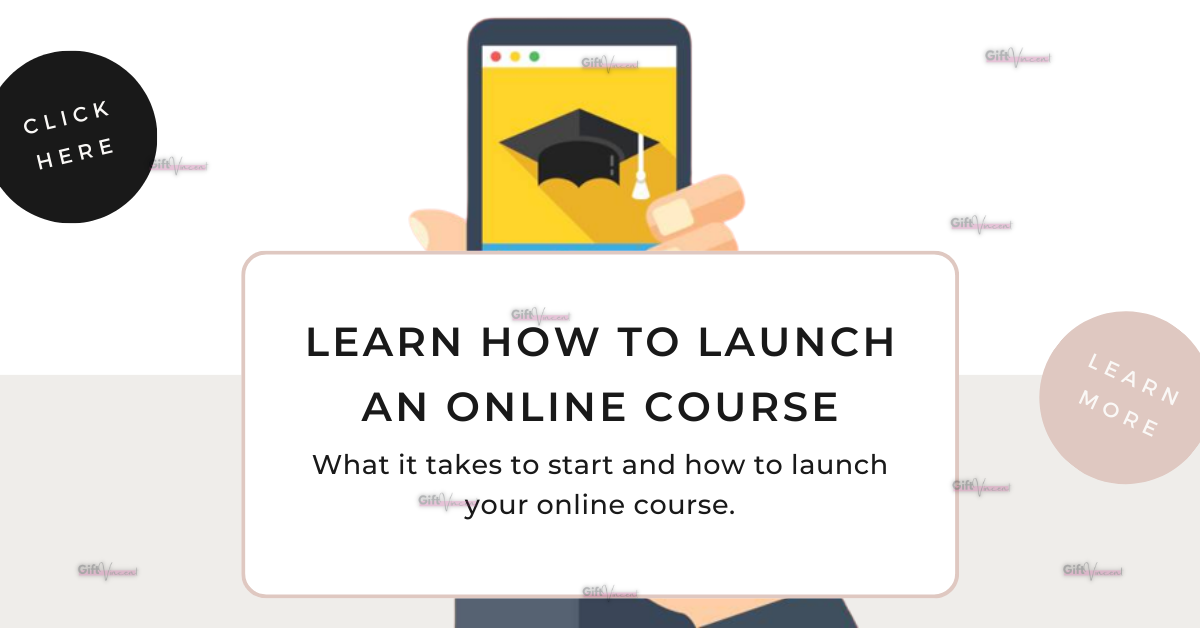|
Getting your Trinity Audio player ready...
|
Online courses range from short courses to full degrees and can be offered by colleges, universities, organizations and finally, by individuals. We’ll be exploring what it takes for an individual to create and launch a successful online course.
Course creators, often times offer flexible scheduling, 24/7 access to course materials, and allow people to learn at their own pace. Online courses can vary in format, including text-based, video-based, or a combination of both. Some online courses offer real-time interaction with instructors and classmates, while others are self-paced with little or no interaction.
Recent Statistics About Online Courses You Need to Know
Recent statistics show that online learning has increased in popularity due to the COVID-19 pandemic. Some of the key findings include:
- Growth in enrollment: Online enrollment has seen a significant increase, with some reports showing growth rates of up to 20% in the past year.
- Wider demographic reach: Online courses are attracting a wider range of students, including non-traditional and older students, as well as those in remote or underserved areas.
- Improved completion rates: Some studies have found that online courses have higher completion rates compared to traditional classroom-based courses, with online students being more likely to finish a program.
- Increased use of technology: The use of technology, such as virtual and augmented reality, in online learning, has increased, offering students new and innovative learning experiences.
- Cost savings: Online courses are often less expensive than traditional in-person courses, which can make education more accessible for students.
Overall, online courses have become a popular option for those seeking education, offering a flexible and cost-effective way to learn.
What Does it Take to Launch an Online Course?
To launch an online course, you’ll need the following:
- A clear concept and target audience: Determine what your course will cover, who it’s for, and what their needs and interests are.
- Content creation: Develop your course material, including lectures, assignments, and assessments. This can be done through a variety of mediums such as video, audio, text, and interactive elements.
- A learning management system (LMS): Choose a platform to host your course and manage student interactions, such as Canvas, Blackboard, or Teachable.
- Course pricing and payment processing: Determine your course fee and set up a payment system to accept payments.
- Marketing and promotion: Promote your course through your website, social media, email, and other channels to reach potential students.
- Instructor support: Have a plan for providing support to students, such as answering questions, grading assignments, and offering feedback.
- Assessment and evaluation: Incorporate assessment and evaluation methods, such as quizzes and exams, to gauge student learning and progress.
- Continuous improvement: Regularly review and improve your course based on student feedback and data to ensure a high-quality educational experience.
Launching an online course requires planning, preparation, and investment, but can be a rewarding and profitable venture for educators and experts.
MUST READ: How To Write Content That Will Convince and Convert
Why Should You Launch an Online Course?
Creating an online course is a great way to use your time wisely, increase your business and reach more people. These are all great reasons to pursue this goal.
Making more money is only a desired end. Working less while making more is possible with this option. You help more people while garnering many victories in the process.
E-learning markets grow quickly. Statista predicts that the e-learning market will size $370 billion by 2026. In fact, the sector has already grown to $101 billion in 2019. eLearning provides 40% of Fortune 500 businesses with professional development. This means a lot of potential for the profession as a whole.
There are several other reasons why you may want to launch an online course, which include:
- Share your expertise: Online courses provide a platform for you to share your knowledge, skills, and experience with a wider audience.
- Reach a global audience: Online courses can be accessed from anywhere in the world, allowing you to reach a diverse and global audience.
- Flexible income stream: Online courses can generate passive income and provide a flexible and scalable revenue stream.
- Build your personal brand: Launching an online course can help establish you as an expert in your field and enhance your personal brand.
- Improve job prospects: Creating an online course can demonstrate your skills, knowledge, and commitment to your field, making you more competitive in the job market.
- Help others: By sharing your expertise, you can make a positive impact on the lives of others and help them achieve their goals.
Overall, launching an online course provides an opportunity to share your expertise, reach a wider audience, and generate a flexible income stream while building your personal brand and helping others.
How to Create an Online Course
Here are the steps to create an online course:
- Determine your topic and target audience: Choose a topic that you are knowledgeable and passionate about, and identify the audience you want to reach.
- Plan your course content: Break down your course into manageable sections and develop an outline for each lesson, including lectures, assignments, and assessments.
- Create and organize your content: Create multimedia content such as videos, audio, text, and interactive elements to deliver your course content.
- Choose a learning management system (LMS): Select an LMS platform to host your course, such as Teachable, Udemy, or Thinkific, and organize your course content within the platform.
- Test and refine your course: Test and refine your course content by getting feedback from beta testers or students, and make improvements based on their feedback.
- Launch and market your course: Once you have completed the course, launch it and market it through your website, social media, email, and other channels to reach potential students.
- Provide ongoing support: Offer ongoing support to students, such as answering questions, grading assignments, and providing feedback, to ensure their success.
- Evaluate and improve your course: Regularly evaluate and improve your course based on student feedback and data, to keep it current and engaging for students.
Creating an online course requires planning, preparation, and effort, but it can be a rewarding and profitable venture for educators and experts.
3 Things You Need When Launching Your First Online Course
- PreLaunch: At the stage of pre-launch, you are to announce a product release date, just like a movie trailer; the aim is to make people aware that something exciting is coming up.
- Launch: Let’s just call this an opening day for the online course. Usually, I would recommend you have a webinar or live stream because this is the first day for people to enrol in your online course. If you are going to work with a webinar, you might want to get people to register for the webinar in advance before the launch date when the webinar will hold.
- Post Launch: After your launch, it’s time for the real work to begin. At this point, your job is to create content, videos and other short-form content, while you are assisting your students, responding to their inquiries, and learning how you can enhance your course towards its subsequent launch. You might still upsell your existing offerings while awaiting your next launch or keep selling your course if you with.
Suggested For You: How To Build an Email List From Scratch
There you have it! Now you can successfully launch an online course. Check out this page where I share more awesome content about Everything You Need To Launch a Successful Digital Course
Finally, I’ll like to know what stage you are at right now with launching your online course. Let me know in the comments below, and also mention if you have any other area of interest with online courses and I will be glad to write about it.
If you found this helpful, then you’ll love my next articles. Subscribe to receive all the valuable insights posted on my blog in just one newsletter monthly. No disturbance.






1 Comment